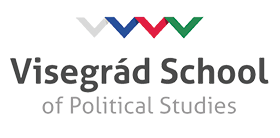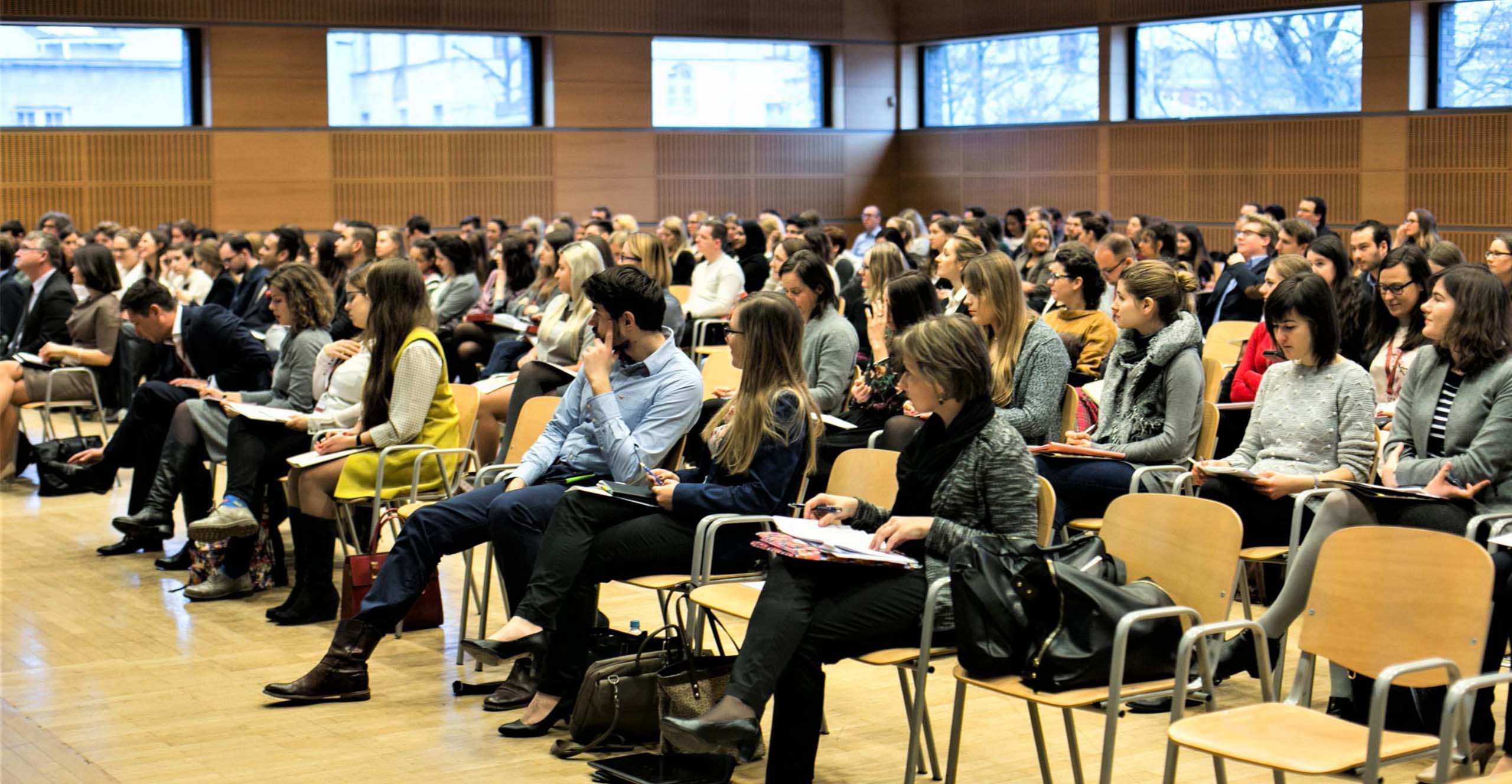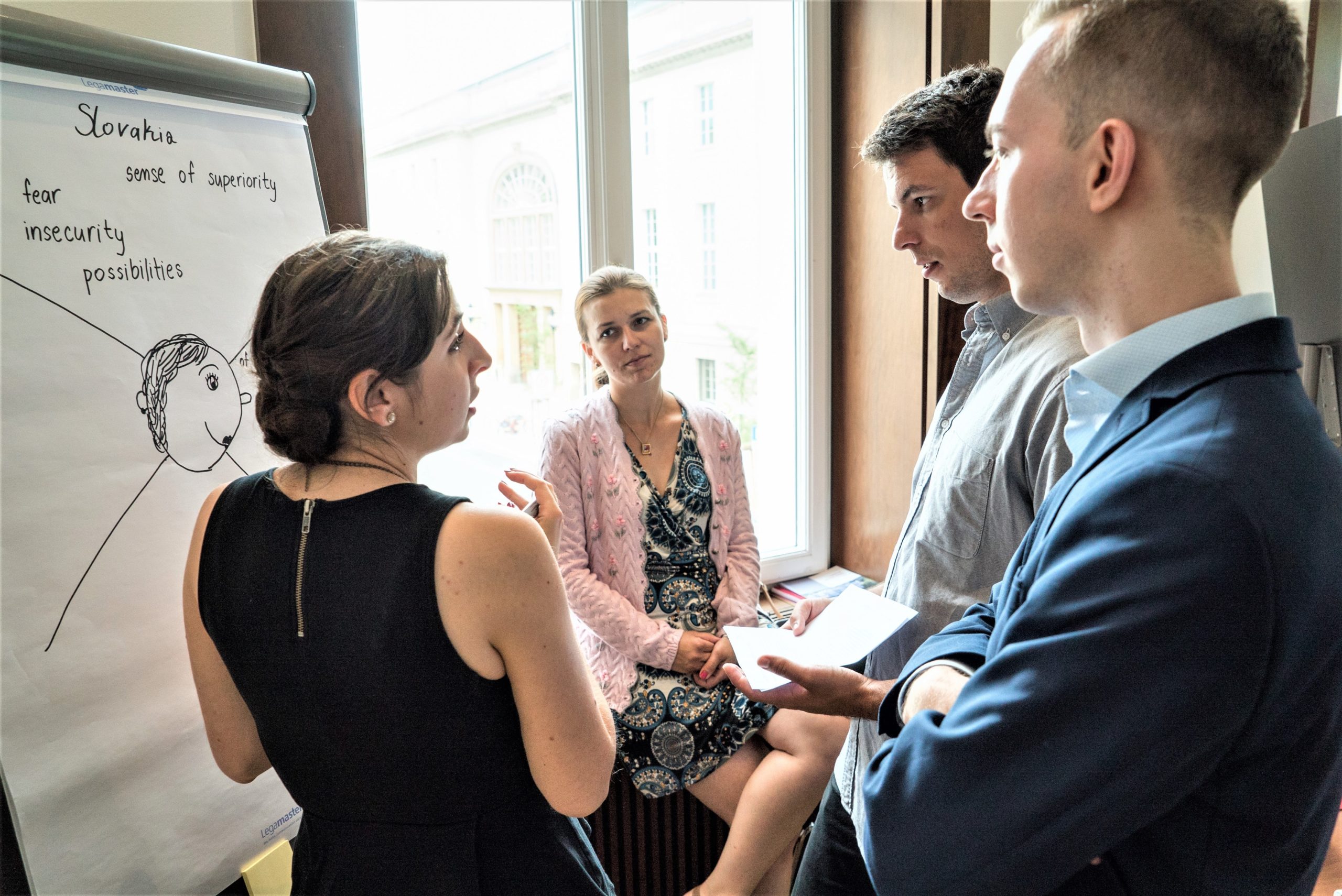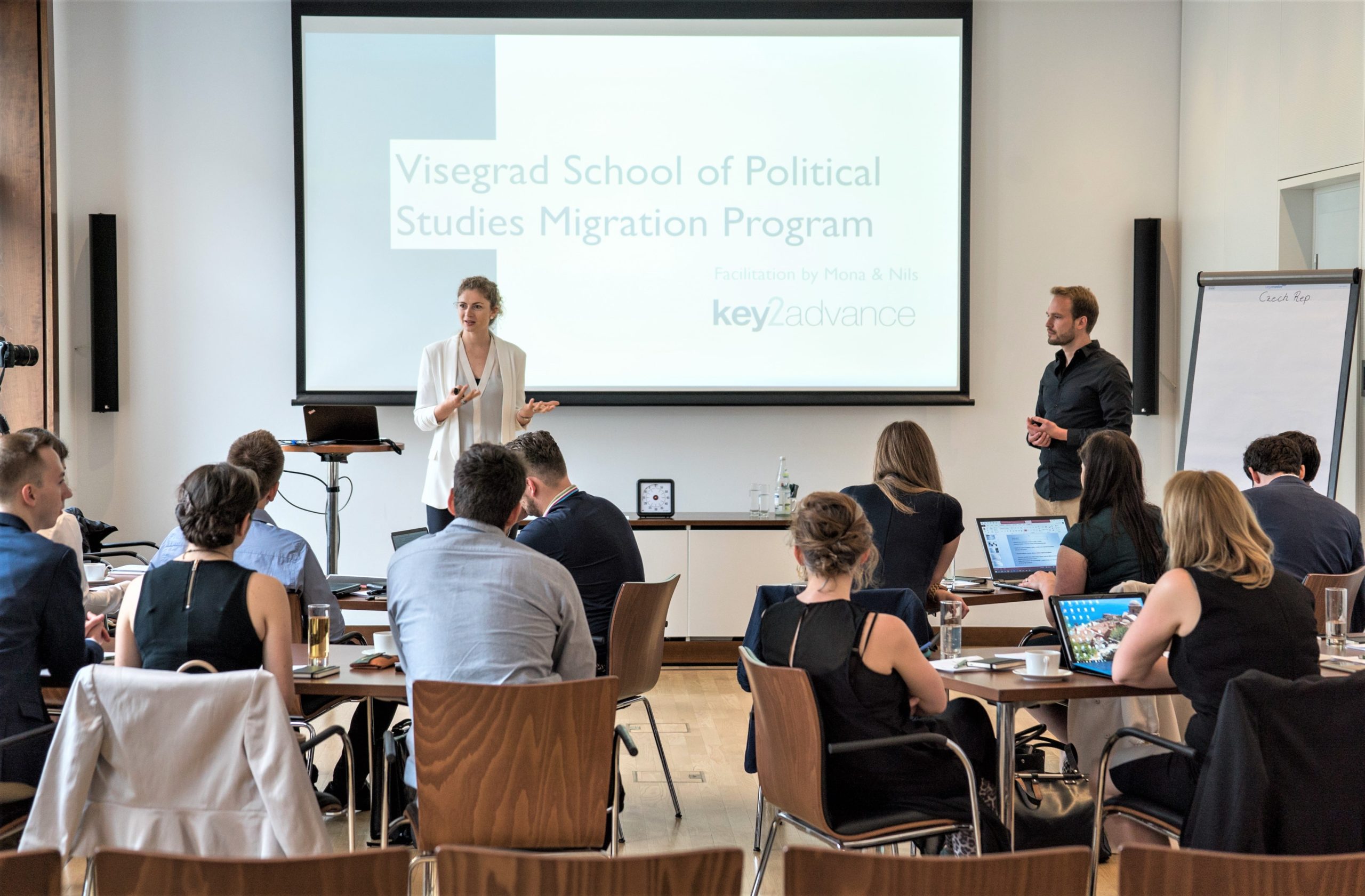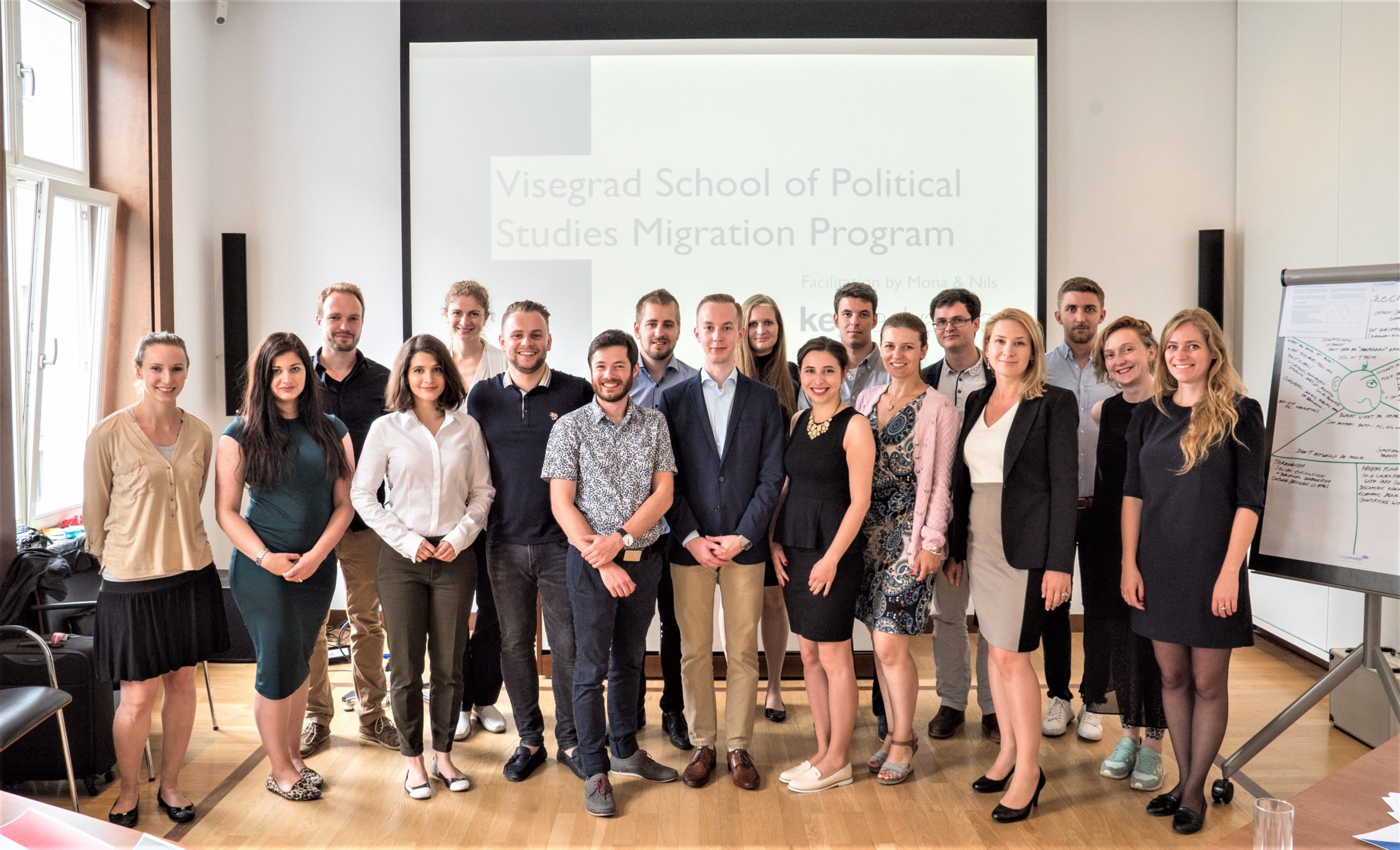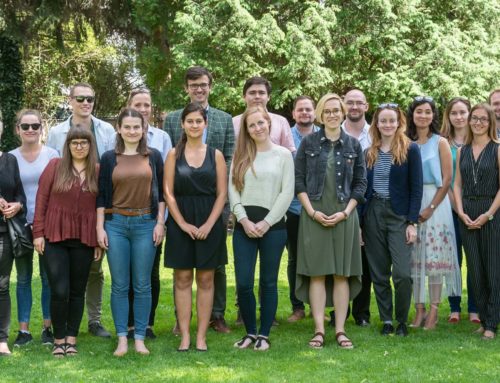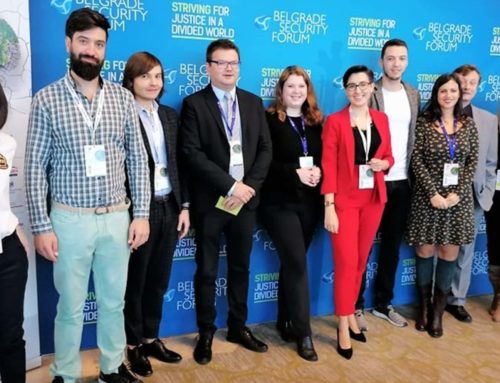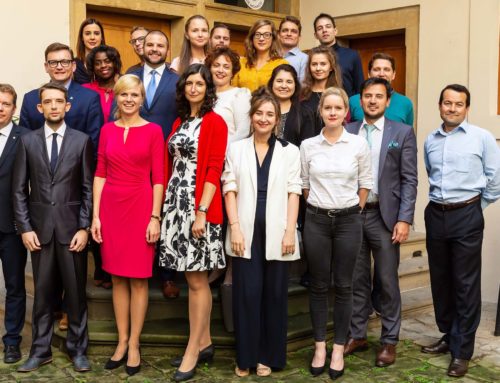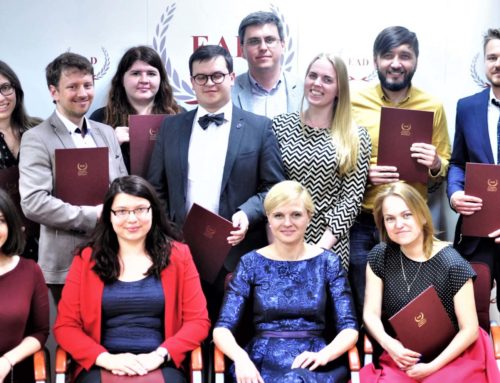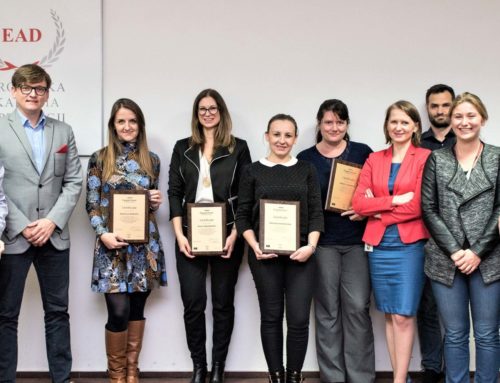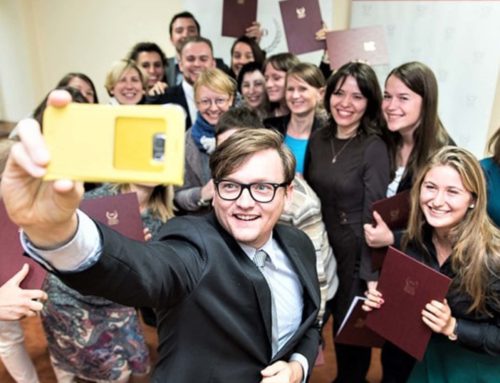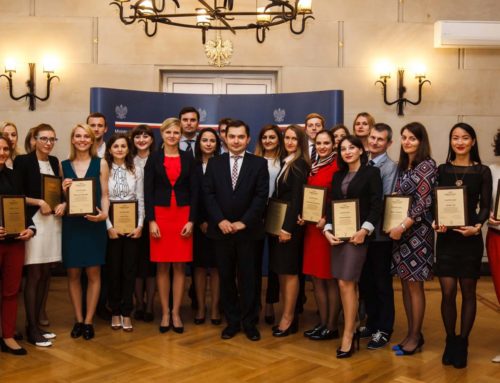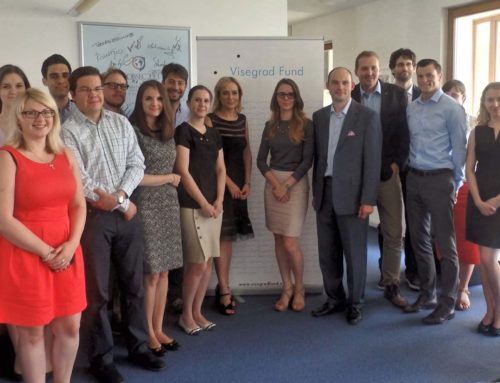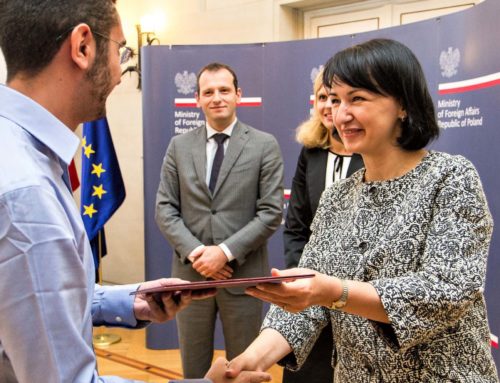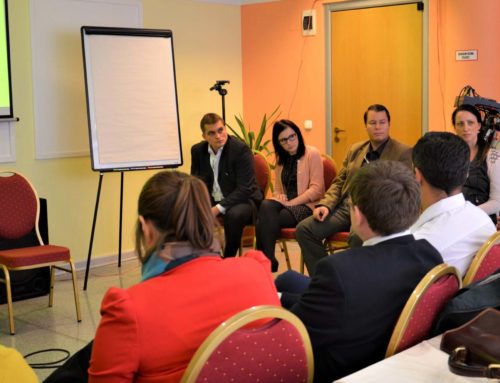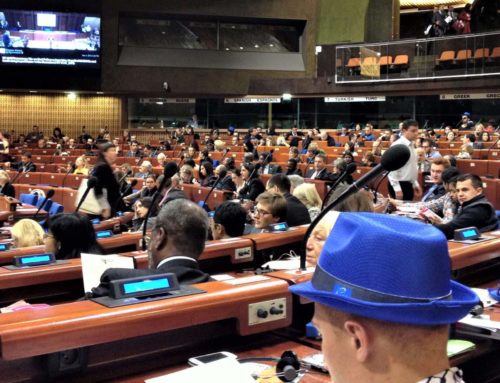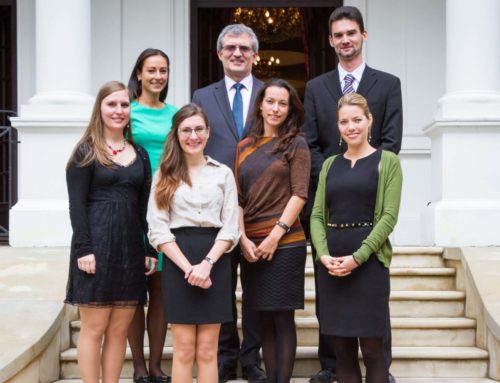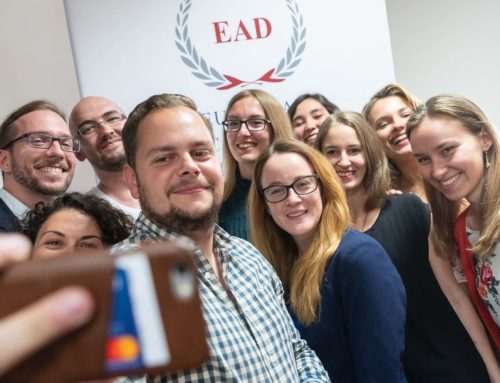The 2016/2017 VSPS Annual Program „Perceptions of migration in Visegrad Group and Germany” (VSPS Migration Program) was designed to influence and shape the public debate on migration in Czech Republic, Germany, Hungary, Poland and Slovakia. During 4 sessions, the program took 16 young leaders to 4 cities in 3 countries, where they attended workshops, discussions and meetings covering different aspects of migration.
The goals of the VSPS Migration Program are threefold:
-
to deepen the participants’ knowledge on the issue of migration, develop their ability to identify and solve the complex challenges facing Central European societies, as well as enhance their capacity to shape and strengthen the democratic processes in their respective countries;
-
to share different perspectives on migration between Visegrad Group and Germany and discuss their root causes;
-
to influence the younger generation by conducting meetings with high school students and providing them with unbiased view of the migration crisis, as well as presenting them with a forum to express their own views, doubts and thoughts.
From February to June 2017, after attending preparatory sessions in Warsaw, Strasbourg and Cracow, the 16 main participants of the program – social activists, humanitarian workers, political analysts, human rights defenders and others from Czech Republic, Germany, Hungary, Poland and Slovakia – held 37 classes titled “Critical Thinking on Migration Workshops” for over 800 students.
The aim of the workshops was to develop the students’ critical thinking by analyzing different aspects of the current refugee and migration crises. The participants learned the fundamental definitions necessary to understand the subject, find out sources of reliable data and practice distinguishing between facts and fake news. In addition, we wished to inspire students to mindfully approach public discussions of different topics.
The subjects covered during the Critical Thinking on Migration Workshops included:
-
Legal status of migrants and refugees, differences in obligation
of countries towards refugees and immigrants.
-
Why do people leave (push and pull factors)?
-
Why do countries accept migrants? Why do they not accept them?
-
How do migrants contribute to economy and society? What are the difficulties and risks in accepting migrants?
